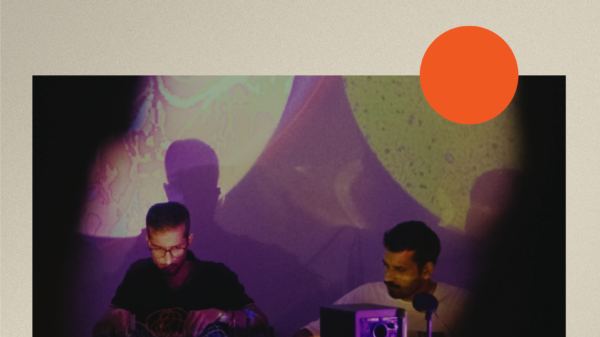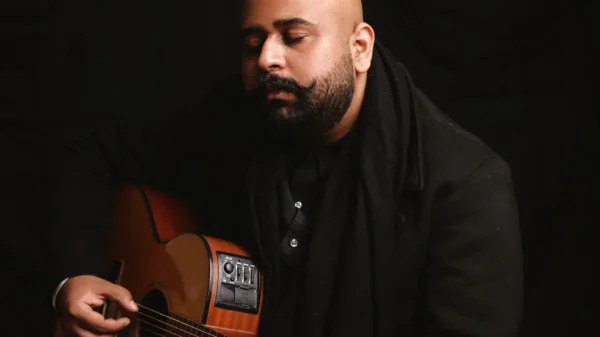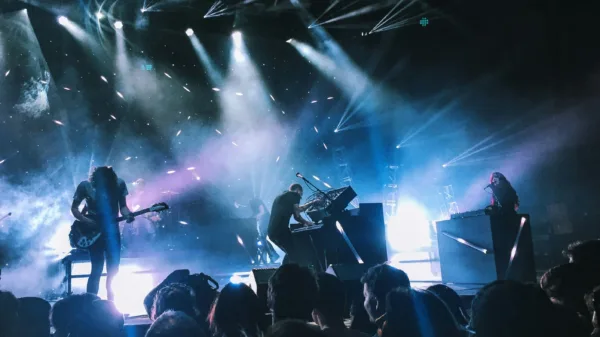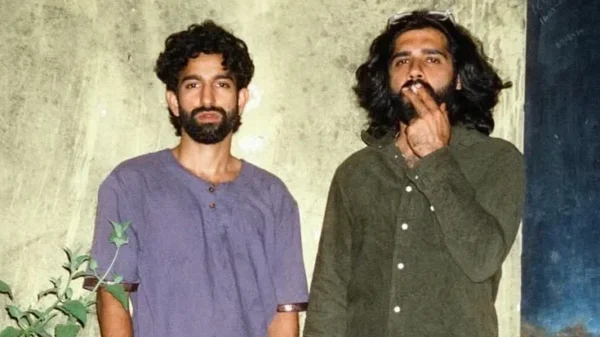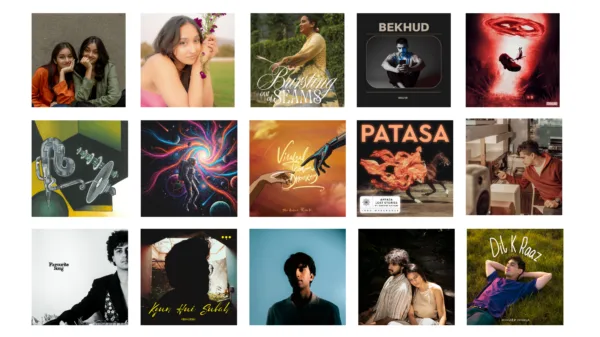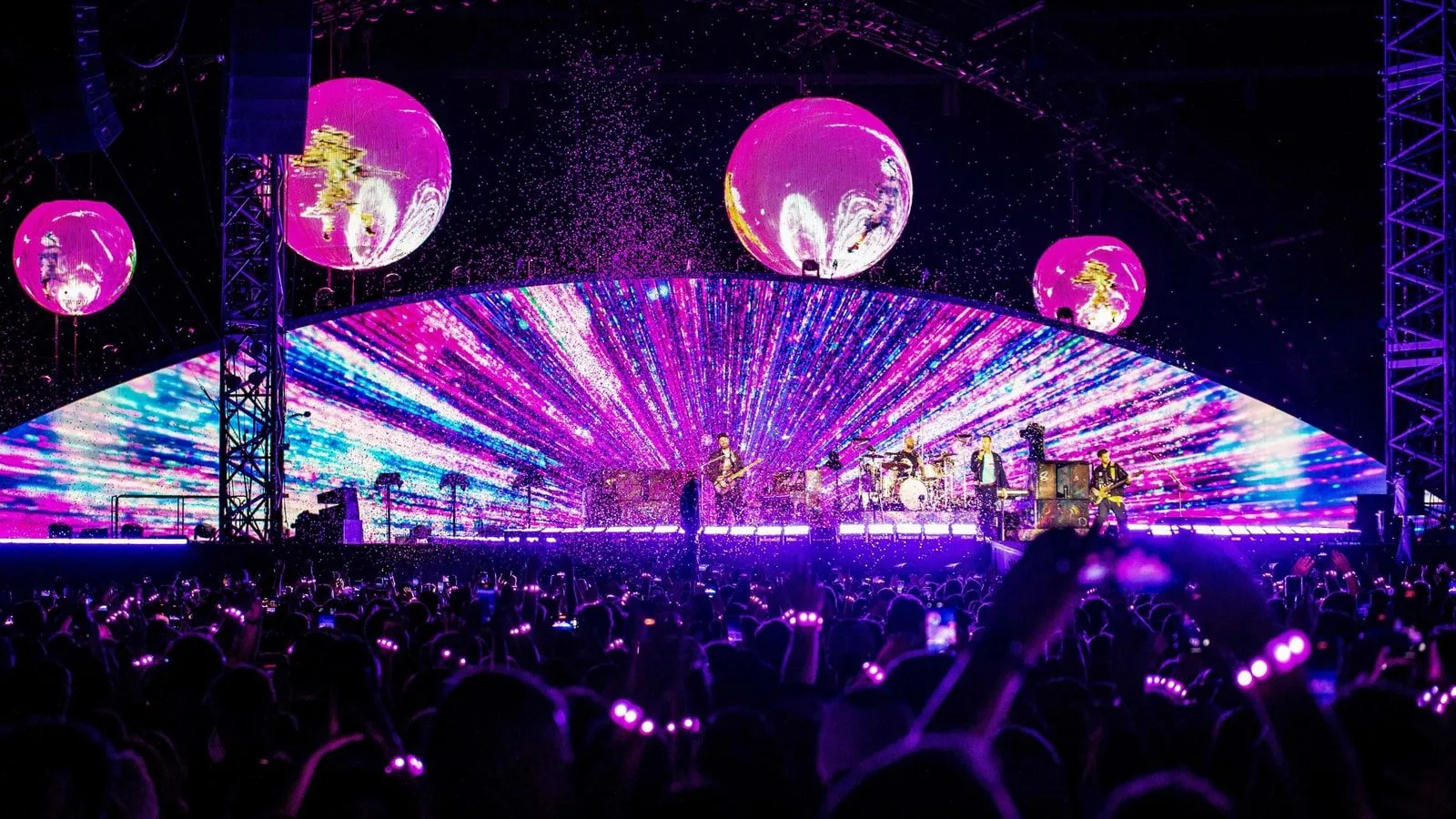So, you, like a million others in the country, did not get tickets to the Coldplay concerts in Mumbai? Presumably, you set up multiple devices, waiting for the clock to strike the exact hour the tickets would go on sale on BookMyShow, probably asked your friends to do the same, and formed an enmeshed group of people who were praying to the gods of probabilities to roll the dice into a six on the checkerboard of your fate. Things, of course, famously did not turn out that way.
The reason you did not get tickets is not because you had fumbled a deal with Providence in the past that insulated you from any good fortune that would enable you to buy concert tickets which are high in demand. The primary reason for the unavailability of tickets on BookMyShow, was something called scalping. Scalping, or ticket brokering, (reselling tickets for profit) is by no means a new phenomenon, one can trace it right back to the Roman Empire. Overtime, however, it has assumed gargantuan shape, accruing profits and pricing tickets at unimaginable prices, and become a full-fledged industry. However, gone are the days when scalping used to be a man-to-man action, now exists a full fledged strategic system wherein reselling websites employ bots to bypass CAPTCHAS which take us ages and acquire tickets, create a sense of scarcity, and then over-price them to the public. It is to be noted that none of these profits make their way to the artists in question, the reseller pockets the entire profit margin — which, according to Business Standard, has had a markup of 2340%.
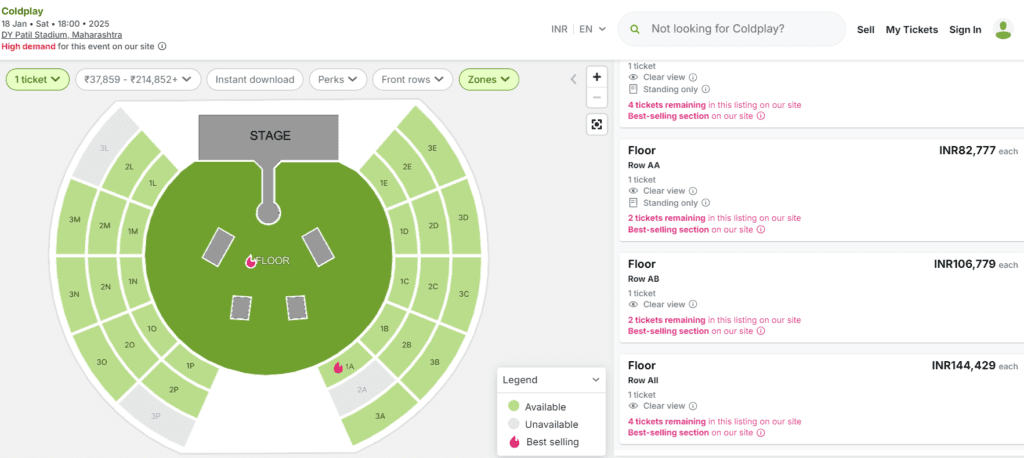
Predictably, this has spawned multiple lines of discourse, including the ethicality of reselling. In what world is a ticket priced at 4500 rupees, initially, resold at 1.05 lakhs? This one, for sure — as sites like Viagogo and Gigsberg. Even Indian platforms like TakeMyTicket and TicketTransfer had tickets listed on their websites. This has led to massive outrage among die-hard fans who have been waiting for a significant amount of time to see Coldplay live, and in action in the country, but feel cheated of their opportunity to see their favorite artist (and rightfully so). BookMyShow, after their poor execution in music management and ticketing, issued a notice that said, “Scalping is strictly condemned and punishable by law in India. We have filed a complaint with the police authorities and will provide complete support to them in the investigation of this matter.” This shows a complete disregard for audiences because scalping has been a huge issue, especially in concerts of huge magnitudes. The sun has not yet set on the Taylor Swift and the Ticketmaster fiasco and ensuring that tickets are not so easily transferable should have been one of the foremost priorities. This is not a one-off unpredictable occurrence no one saw coming, especially for business/media professionals. As brands continue to host giveaways, as influencers flaunt passes that they get through connections, what becomes apparent to us is a blatant disregard for the music and any respect for it.
First things first, this is an ethically corrupt and downright exploitative practice. What I do find funny, is in a post-LPG world, where so much of our entertainment scene is driven by looking towards the collective “west” for inspiration, vying for tickets and wanting to go seems to be a practice that is still kept limited to the urban elite, people who have millions to squander away over concert tickets — people who get to value “experiences” without compromising their life savings. One conversation is about our willingness to spend an irrational sum of money (seriously, even 6000 is a lot for many) for concerts, the other is a commentary on how there this rhetoric has been created that entertainment should be accessible only to a certain class, while the rest have to push their way into local trains and accept living paycheck to paycheck. Billionaire Harsh Goenka tweeted, “Urban Indians are clearly shifting from Roti, Kapda, Makaan to a Zindagi Na Milegi Dobara. Coldplay’s January 2025 shows sold out swiftly, with resale prices hitting 5x the original. Diljit’s tickets, priced at Rs 7,000 saw massive sales, as did Dua Lipa and Bryan Adams’ concerts. Two Indias are emerging—one enjoying these luxuries, while the other struggles to meet basic needs.” Perhaps it is my long-standing vitriol towards the top strata of society who try to make incisive cultural commentary that barely scratches the depth of a finger stuck in water, but sentiments like this only work towards propelling a system of shaming of audiences to even vie towards anything that even affords them some relaxation. Let us forgo Coldplay for a hot minute, and take Diljit Dosanjh as an example — his audience base spans further than the English-educated middle class who listen to music made in English. So does Karan Aulja’s, and yet both of their tickets have been priced at similar rates, and then resold at similar exorbitant rates: with Dosanjh’s October show at JLN Stadium, Delhi having tickets starting from 19,000 to 260,000 rupees.
The rhetoric usually boils down to “this is a wasteful purchase” and you should “find happiness in other simple things” whenever it comes to the question of overpricing or people being unable to afford things. The fingers never point to the fact that accessing entertainment still remains inaccessible to most. If something as universal as music exists, and a concert is essentially a celebration for that — why should the most of us have at least a sliver of access to it? Why does it always entail a spiteful reminder that music, entertainment, fun is only meant for people willing to risk months worth of savings?

This is not just about scalpers. This is about something larger. Yes, live music is a luxury. Yes, costs all over the world are rising for concert production. However, late stage capitalism has driven us to a point in time when abandonment of ethicality is a norm. If you can make it, you do. This applies to fans giving up on concert attendance to make a quick buck. This applies to businesses profiting at these gregarious rates. This applies to artists pricing concert tickets at 12,000 rupees for the starting rates. Perhaps this is the pitfall of pop music, proven to us time and again, not wrested in the hands of the common populace, but the reinholders of this system, the stars, the companies. Perhaps this is the fate of music not born out of subculture or any personal gravitation towards music. It is, after all, the music business, emphasis on business.






